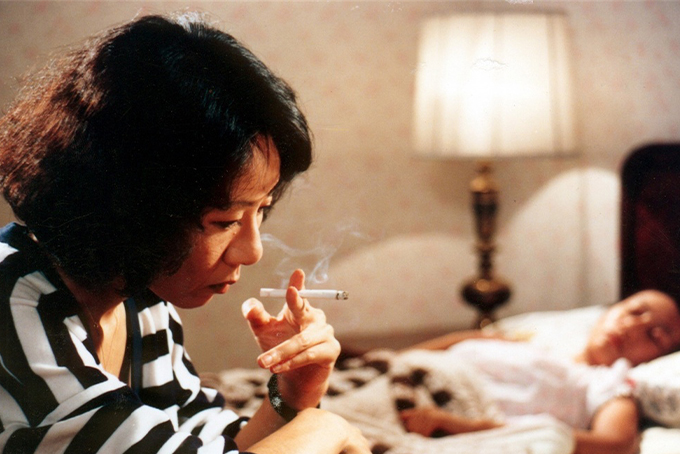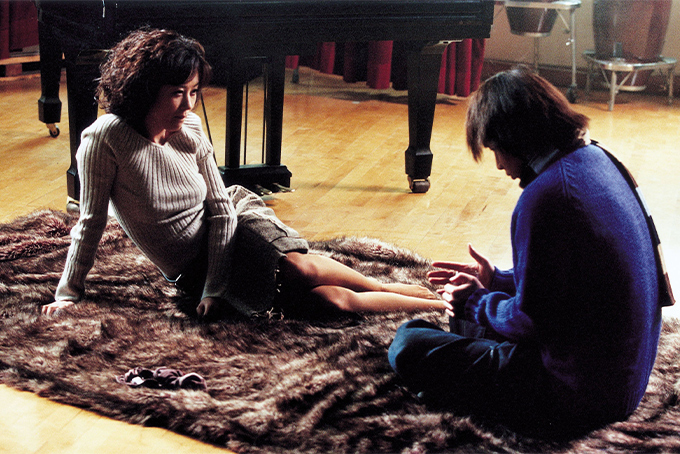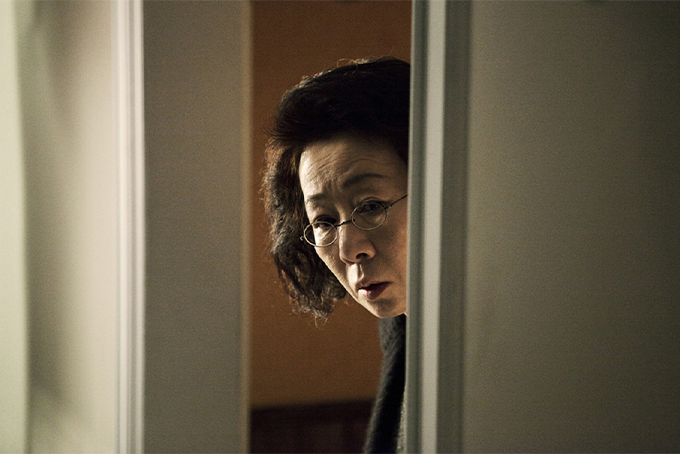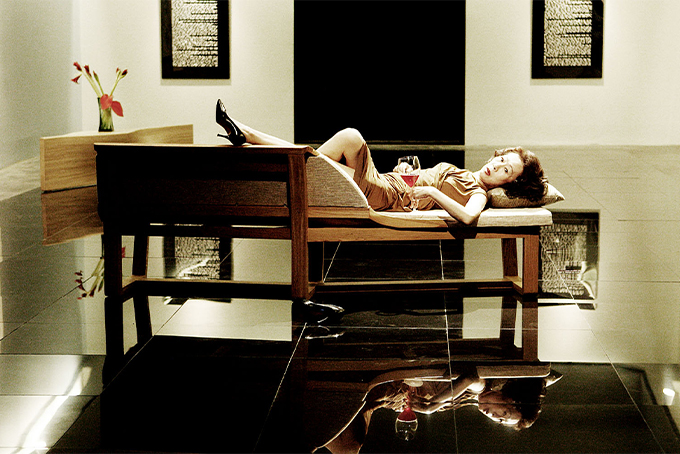The 73-year-old Youn Yuh-jung just became the first Korean actress to win an Academy Award. She leaves a litter of other gold trophies in her wake at the end of this awards season, having snagged award recognition from more than 40 American critics’ associations, and clinched both a BAFTA and a Screen Actors Guild Award.
The role in question? Soon-ja in Lee Isaac Chung’s heartbreaking Minari, a coming-of-age American dream picture that picked up five other Oscar nominations, including Best Picture, Best Actor, and Best Director. Youn was Lee’s one and only choice to play Soon-ja. He sent her the script; she liked its honesty. The rest, as they say, is Oscars history.
In Minari, the Yi family—Jacob (Steven Yeun), Monica (Han Yeri), David (Alan Kim), and Anne (Noel Kate Cho)—move to rural Arkansas to build a farm and, hopefully, a life. Soon-ja, Monica’s mother, crashes into their lives. She drinks Mountain Dew and likes to watch pro-wrestling. She swears and wears men’s underwear, and worst of all, as her grandson David points out, she doesn’t bake cookies. Soon-ja doesn’t fit the mould—which perfectly describes much of Youn’s career as a performer.
As ironic as it sounds for an actress’ archetype to be characters who defy conventions, that’s just the way Youn loves to work. Throughout her storied career, she has butted heads with social norms, playing elderly prostitutes and murderous matriarchs. Beginning with her breakout role in the early 1970s, her instincts when choosing roles naturally inclined her towards atypical, dark characters. But whether the role requires her to be a femme fatale or an offbeat grandmother, Youn has always been both a workhorse and a maverick, throwing herself completely into the character and the audience for a loop.
She may not have been a household name outside of Korea before Minari’s release last year, but Youn has been a hometown legend for a long, long time. Here, we trace just a small selection of the path that Youn trod to get to her Hollywood debut. It may have taken nearly three-quarters of a century, but the world is better off for the wait.

1 / 9
Woman of Fire (1971)
화녀
In her twenties, Youn took a part-time job at a TV station. A director working there spotted her and suggested she screen-test for its drama division. She did so, and quickly started landing roles in dramas. From there, director Kim Ki-young (the “godfather” of Korean psychosexual cinema) cast her in the second installment of his Housemaid trilogy, Woman of Fire. A smash hit, the movie—about a young woman from the country who moves into a couple’s home and gets horribly tangled up in their lives—shot her to fame. For her work in it, Youn won the Grand Bell Award for Best New Actress, and the Blue Dragon Film Award for Best Actress.

2 / 9
Insect Woman (1972)
충녀
Also directed by Kim, Insect Woman sees Youn play a poor high school student who goes from working as a hostess at a bar to becoming a married man’s mistress—with his wife’s consent. Three years after the film’s premiere, seemingly at the zenith of her powers, Youn then abruptly retired. She married the singer Jo Young-nam, and followed him to Florida. A decade and a divorce later, Youn went back home to see if she couldn’t kick-start a second wind for her film career. With two children by her side, she had to battle deeply-ingrained stereotypes about divorced women and, for many years, took whatever television work came her way.

3 / 9
Mother (1985)
에미
Throughout the 1980s, Youn often played mothers on television. One of her highest-profile roles during this period was in Park Chul-soo’s Mother, also titled Woman Requiem. The film took home Best Picture at the Grand Bell Awards that year. In it, Youn is a mother on the rampage, pursuing vengeance against the men who assaulted her daughter. It is a gut-twisting watch, but there’s no doubt that Youn drew on her own personal experience as a mother to inform her portrayal. To this day, she still credits her two boys for making her “go out and work,” as she said in her Oscars acceptance speech. “This is the result—because Mommy worked so hard.”

4 / 9
A Good Lawyer's Wife (2003)
바람난 가족
Call this the start of Youn’s third epoch as an actress, the one that continues to this day. Though she wouldn’t truly settle into her renaissance until 2010’s The Housemaid, it was in A Good Lawyer’s Wife that audiences were reintroduced to Youn’s power as a woman onscreen. A member of an exceptionally dysfunctional Korean family, Youn’s cheating wife plays delightfully into the absurdity of the film’s sadistic, erotic humour. A Good Lawyer’s Wife also marked the beginning of a collaborative period with revered director Im Sang-soo.

5 / 9
The Housemaid (2010)
하녀
Starring in the remake of her own movie? All in a day’s work for Youn, who this time around took on the mantle of the senior housemaid who discovers her underling (Youn, in 1971; Jeon Do-yeon, in 2010) is having an affair with their boss. As in 1971, it doesn’t end well for anyone—except the real-life Youn, who swept the South Korean awards circuit. She was nominated as Best Supporting Actress in eight separate ceremonies, and won every single one of them. (And at the Max Movie Awards, she was nominated both as Best Actress and Best Supporting Actress, though she only won the latter.)

6 / 9
The Taste of Money (2012)
돈의 맛
Another Im Sang-soo venture, The Taste of Money was a Cannes favourite, and sees Youn playing the matriarch of a chaebol. It’s an incredibly risqué film, one in which Youn’s character gets revenge on her cheating husband by bedding his assistant and having his mistress killed. Infidelity is a theme that has marked many of Youn’s onscreen escapades. One doesn’t have to reach too far to connect the dots to her real life, either, as her ex-husband has since admitted that his own adultery was what led to Youn breaking off their marriage.

7 / 9
Canola (2016)
계춘할망
It’s only been in the last half-decade or so that we’ve seen Youn’s more grandmotherly side emerge on the silver screen. Every time it does, however, the audience knows they’re in for a treat. In the 2016 drama Canola, Youn plays an aging haenyeo who makes her living by diving for shellfish (haenyeo are a celebrated part of the traditional culture of Jeju Island, where the movie was filmed). She raises her granddaughter, until one day the girl vanishes without a trace. Then, 12 long years later, her granddaughter reappears on the haenyeo‘s doorstep. A graceful portrait about reconnection, Canola saw Youn collect her fifth Grand Bell nomination.

8 / 9
The Bacchus Lady (2016)
죽여주는 여자
E J-yong’s drama saw Youn strike out into even more unknown territory, plumbing the psychological depths of an elderly prostitute who gets deliberately embroiled in the deaths of former clients. The Bacchus Lady saw Youn garner another Best Actress award—her first in 45 years, since 1971’s Woman of Fire. E built the film around Youn, like she did 2009’s Actresses—a genre departure for Youn. Part reality show and part mockumentary, Actresses saw the veteran performer play a caricature of herself, drinking and snarking, and alternately scoffing at and advising the younger women around her.

9 / 9
Beasts Clawing at Straws (2020)
지푸라기라도 잡고 싶은 짐승들
After The Bacchus Lady, Youn made her way back onto the small screen, hosting Youn’s Kitchen, a reality series where she and other Korean celebrities open pop-up restaurants abroad. It’s still airing, but in between shoots, Youn found time to make the darkly comic Beasts Clawing at Straws. In it, the viewer can already see shreds of Minari’s Soon-ja poking through; Youn plays a grandmother who growls at her son, calls her daughter-in-law a “bitch”, and urinates whenever (and wherever) she feels like it.





